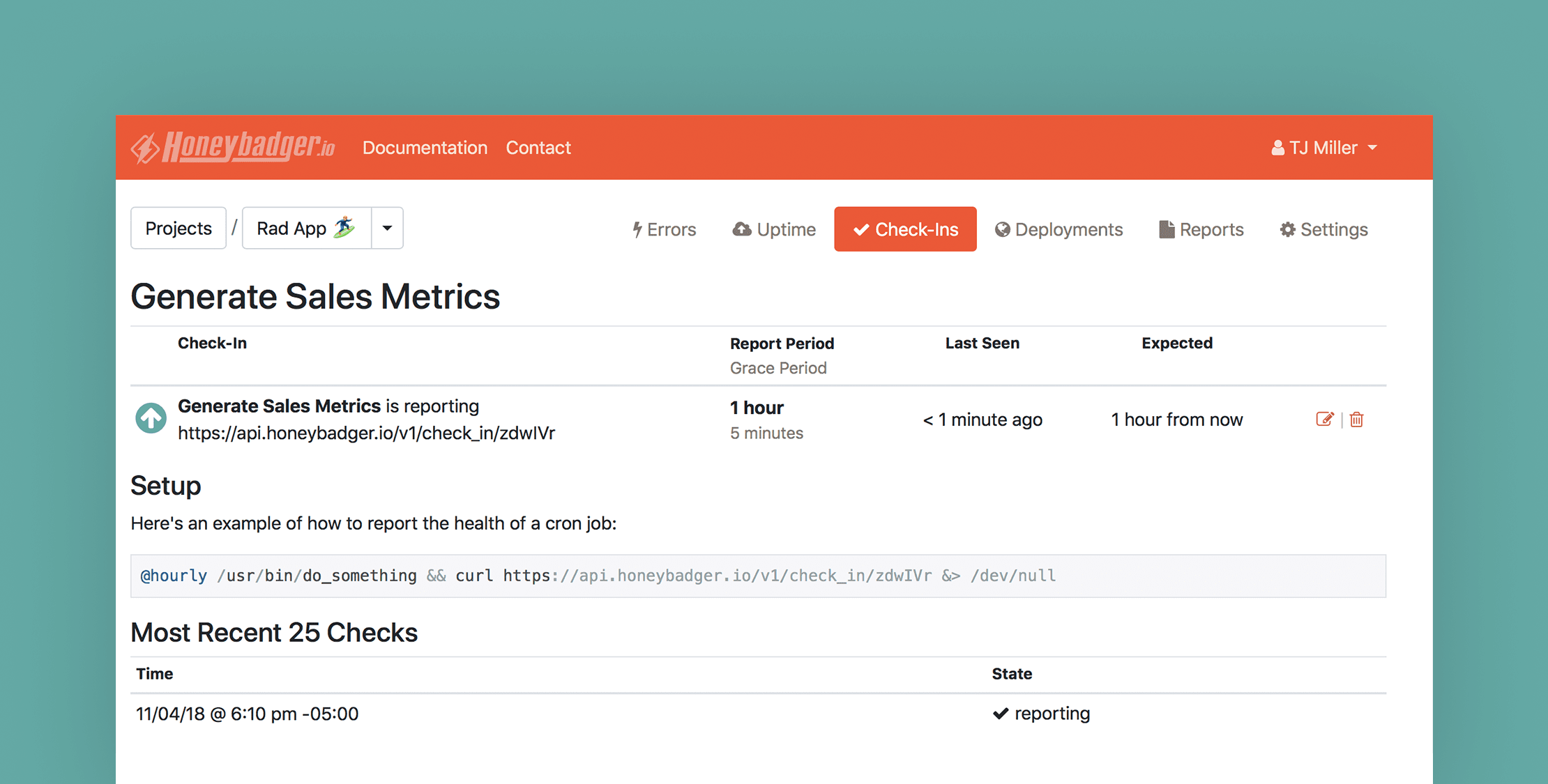I know I’m not the only developer that has scheduled tasks and cron jobs that are critical to an application; whether its crunching data, sending reports, or kicking off welcome emails. It’s super painful when these things go wrong. One of the major problems with these types of solutions is that there is often zero visibility into whether they are running correctly or on time. Unless they throw an exception and are caught by your error monitoring service, you are in the dark.
Some common use cases for scheduled tasks:
- Daily/Weekly/Monthly summary reports
- Generating metrics
- Garbage collection
- Filesystem
- Database
- Cache
- Notifying customers of upcoming expirations (credit cards)
Before I got started with Laravel, all of my schedule jobs where done by entering multiple crontab entries targeting one-off commands into my application.
*/5 * * * * cd /var/www/radapp/commands && php clear_ abandon_states.php1 0 * * * cd /var/www/radapp/commands && php send_daily_summary.php0 */1 * * * cd /var/www/radapp/commands && php generate_sales_metrics.phpThis worked ok, but none of it is tracked in VCS, there isn’t really any visibility into which tasks are enabled and when they run, and you just hope that server doesn’t die and you lose all the configurations. Laravel made that mess so much cleaner.
* * * * * cd /var/www/radapp && php artisan schedule:run >> /dev/null 2>&1The schedule:run command looks through all of the tasks defined in app/Console/Kernel.php and determines which tasks/commands need to run. It then runs each command in a new process to prevent a failing task from bringing down every other task that needs to run.
class Kernel extends ConsoleKernel{ protected function schedule(Schedule $schedule) { $schedule->call('reports:daily-summary')->dailyAt('13:00'); $schedule->call('form-wizard:clear')->everyFiveMinutes(); $schedule->call('metrics:generate-sales')->hourly(); }}If you want more a more in-depth guide to Laravel schedule tasks, take a gander at the docs.
Now that the tasks are under much better control, we still have the problem of visibility. In my previous posts I’ve talked a lot about Honeybadger’s exception monitoring service but one, of my favorite features, is their ability to notify you when your tasks don’t run on time.
Check-ins are super easy to set up.

After we configure the check-in, we can update our task to ping Honeybadger.
$schedule->call('metrics:generate-sales') ->hourly() ->thenPingHoneybadger('zdwIVr');Honeybadger will alert you if the task is late and provides a nice dashboard for each check-in.

If you had some related system-level tasks that you wanted to track, it’s easy to add directly to the crontab.
0 1 * * * /var/www/radapp/backup.sh && curl https://api.honeybadger.io/v1/check_in/zdwIVr &> /dev/nullHaving visibility and monitoring for all my scheduled tasks and cron jobs really makes a huge difference in my peace of mind.
Try Honeybadger free for 15 days
Many thanks to Honeybadger for sponsoring Laravel News.











